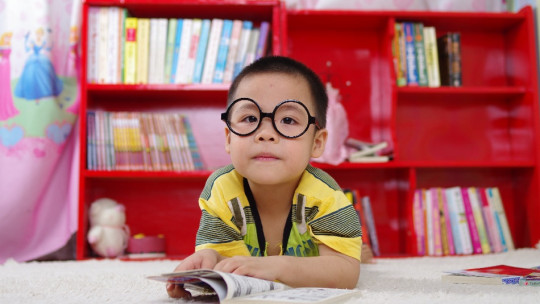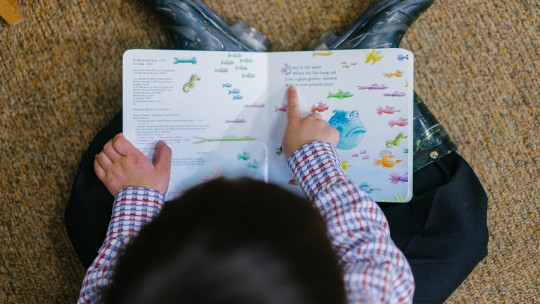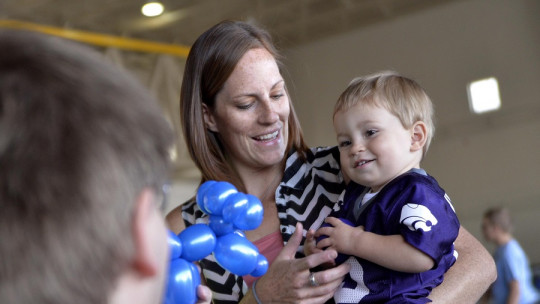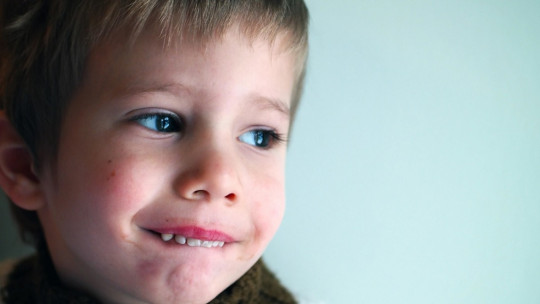
The acquisition of language sounds progresses as the child grows. Sounds are acquired according to the degree of difficulty, so the younger the child is, the more unintelligible what he or she “says.”
As they grow, they have greater control of their language and where they position it, they know how to differentiate between phonemes and understand, for example, that “s” and “z” sound different.
However, from the age of 5, if the child still does not speak completely well, there is a problem. Parents begin to worry and wonder “why doesn’t my child pronounce well?” and what to do Well, we are going to see it next.
Why doesn’t my child pronounce correctly?
A very characteristic feature of the youngest children is having a rag for a tongue. They have a hard time imitating words, they do not pronounce phonemes well, they turn them around or omit them
Problems articulating phonemes and speaking correctly are perfectly normal in the first years of life. Under 5 years old, they do not have efficient control of their language and the rest of the speech apparatus, and they still have to learn to distinguish the phonemes that make up their native language.
Each child grows at their own pace and, while some may speak quite clearly at just 3 years old, others still struggle a little at that same age. However, From the age of 4 or 5 there are enough reasons to worry if our son or daughter does not speak well at all It may not be anything serious, of course, but it never hurts to go to a speech therapist to evaluate what exactly is happening so that our child still does not articulate phonemes well.
The dyslalia
The name by which he is known problems in correctly pronouncing the phonemes of the mother tongue It’s called dyslalia. There are three types of dyslalia, depending on when it occurs and what could explain it.
1. Developmental dyslalia
As we mentioned, up to the age of 4 it is normal for children not to be able to pronounce all the phonemes. This is called developmental dyslalia, that is, the difficulty in pronouncing sounds associated with the fact that the phonoarticulatory organs have not developed properly.
As time goes by, the child will greater control over your tongue, soft and hard palate, lips and other parts involved in the pronunciation of phonemes What is expected is that by 4 years old the child already knows how to pronounce properly, or is very close to saying all the sounds correctly.
2. Functional dyslalia
Functional dyslalia is one in which the child does not use the articulatory organs correctly when trying to pronounce a phoneme It may be due to a problem in the mouth or simply that they have not learned to pronounce the phonemes properly.
For example, he does not correctly place his tongue in the position necessary to make the sound or even lateralizes it. You can also omit, substitute, distort or insert a phoneme.
3. Audiogenic dyslalia
In audiogenic dyslalia the infant does not articulate correctly, not because of problems in the mouth or because of not knowing how to do it, but because he does not seem to perceive the nuances between two or more phonemes This may be due to deafness or not properly perceiving or processing auditory stimuli.
Types of errors
When we talk about dyslalias it is possible to find different types of errors depending on which phonemes are involved and how they are omitted, substituted or rotated. As we said, the main problem in dyslalia is that the infant is not able to speak her native language correctly, however, it is necessary to make a note. When we talk about mother tongue We are not referring to the standard variety or the most widespread variety of the language, but rather the one taught at home with its specific vocabulary.
In the same language there are dialects and none of them should be seen as speaking the language badly. There may be a dialect that is more widespread than the others and that speech has served as a reference or model of pronunciation. However, this does not mean that speakers of other dialects speak badly, they simply speak differently.
It may be the case that in these other languages linguistic phenomena occur that are radically different from how the majority speaks, but that should not be interpreted as errors in speech
For example, in some Andalusian dialects a phenomenon called lisp occurs, which consists of replacing the “s” with “z”. The lisp is also a typical error in dyslalias, however, it is very different from the natural lisp of Andalusian speech. An Andalusian child who speaks with a lisp at home is not a child with dyslalia but is a native speaker of Andalusian Spanish.
With all this clarified, let’s see the main types of errors characteristic of children with dyslalia when using Spanish.
What causes my child to not pronounce well?
There are several reasons behind dyslalia.
1. Evolutionary cause
It would be associated with evolutionary dyslalia. Simply, The child does not pronounce phonemes well because he has not yet fully developed his speech apparatus, but sooner or later it will be fully formed. His age is between 2 and 4 years old, so it is expected that he will mispronounce a few phonemes. However, it will be necessary to see a speech therapist if pronunciation problems persist beyond 5 years of age.
2. Auditory perception problems
There are cases in which the individual cannot pronounce correctly because they do not hear correctly, and this would cause audiological dyslalia. There may be an ear injury, a problem with the auditory nerve, or a brain injury that prevents the child from hearing one or more phonemes well, process them and differentiate them from others. This causes you to confuse the phonemes and hear them the same.
3. Damaged speech apparatus and poor motor control
As the child grows, it is normal for him to acquire the motor skill to move his tongue and lips, emitting the phonemes he wants. The older you are, the more control and better pronunciation. However, sometimes it still happens that has not developed the necessary muscles or has an injury to the lips, tongue, hard and/or soft palate, teeth, jaws or nasal passages which makes your pronunciation look limited.
4. Lack of understanding
Sometimes the problem is neither in the mouth nor in the perception of sounds, but in understanding. Children omit sounds, substitute them or distort them even when they can make them correctly. In some cases speech may be unintelligible if many sounds are affected.
The problems behind this are more of a psychological nature, such as a developmental disorder or personality characteristics such as shyness or disinterest by what the people around him do.
Likewise, they are aware that they do not speak well, they feel frustrated by it, they may show poor academic performance and be aggressive, frustrated because adults repeat to them, over and over again, how they should say things.
What to do if a child over 5 years old still does not pronounce well?
We once again highlight the importance of going to the professional in charge of this problem: the speech therapist. Through its evaluation, a diagnosis will be established that specifies the cause behind our child’s pronunciation difficulties. If the child has problems because he does not understand how to say things Most likely, it will be the speech therapist himself who is responsible for teaching him to speak correctly
On the other hand, if the problem is due to possible deafness, injuries to the mouth or there is suspicion of a neurological injury, other professionals will be called upon, but not without leaving aside the speech therapist. This professional will check the progress that the child makes after the relevant surgical interventions, and will evaluate whether his dyslalia has improved or worsened.
However, It is very important that you also work from home Parents and other family members should serve as models to teach little ones to speak. Even if you are not a speech therapist, there are many ways that you can use to correct your child’s pronunciation problem.
The first thing that must be clear is that the child’s infantilized language should not be encouraged, that is, imitating or using the same incorrectly pronounced words. For example, if he says “tetota” instead of ball, let’s not use that same word, but the correct, no matter how funny it may seem to us. The important thing is that he understands that this word must be said according to how we pronounce it and that, if he wants to be understood, he must learn to say it correctly.
It is very important that, When correcting these errors in pronunciation, do not pressure or demand the appropriate way of speaking That is to say, if he has told us “tetota” we do not say “Say ball, repeat after me: pe-lo-ta”. The best thing is to respond by saying the correct word, for example “I think I saw the ball over there, in your room.” It is also very important to avoid using phrases like “that’s not how you say it” or “it’s wrong,” since doing so could inhibit and discourage him, making him not want to talk.
At 4 years old, children no longer need a bottle or pacifier. I should have stopped using it a long time ago, specifically after 2 years. Using bottles and pacifiers beyond 2 years of age prevents the organs of the speech apparatus from developing correctly, being very counterproductive in the acquisition of correct pronunciation.
Chewing is a very important aspect Chewing performs oral gymnastics, training the muscles that we will use to make phonemes. This is why it is essential that, when he already has teeth, we stop giving him soft foods. Let’s avoid everything being purees, porridge, juices and move on to a solid diet. Of course, it must be cut and be soft enough so that they do not choke, but strong enough for them to chew.








